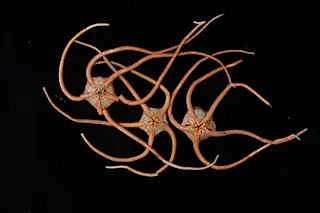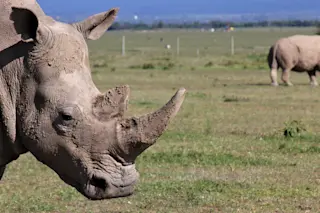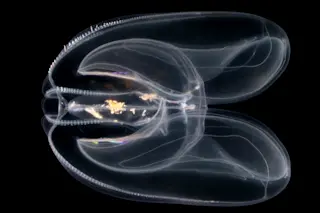Remnants of ancient viruses, which make up about 8 percent of the human genome, are not just silent hitchhikers. Reproductive biologist Tom Spencer at Texas A & M University has found that such foreign elements of DNA, called endogenous retroviruses, are necessary for the growth of the placenta in mammals.
The idea isn't as weird as it sounds. Ever since electron microscopes revealed viral particles budding off placentas in various mammals—including humans—scientists have speculated that such viruses may be involved in reproduction. But Spencer has finally proved, in living animals, how crucial the virus is. When Spencer blocked a gene from an endogenous virus (known as enJSRV) in pregnant sheep, they failed to develop normal placentas and miscarried within 20 days.
How could that happen? Biologists know that animals with viruses already embedded in their DNA can have higher resistance to free-floating versions that cause disease. So the ancestors of ...














